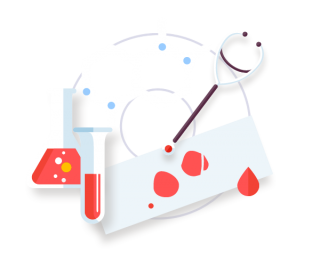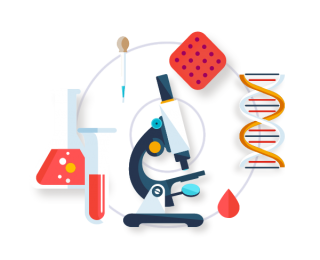STD Tests
It's now easier than ever to have an STD Check online with our comprehensive range of Sexual Health Tests.
Confidential, fast, private STI testing.
Instant referrals, No surprise bills
All tests available
3 Easy Steps
to order your Blood Tests
- Order your tests & print your pathology request
- Visit a Collection Center near you.
No extra fees of any sort - Results by email & SMS to you within approx 24-48 hrs. *Rarer tests may be longer
Dr Tele-Consult - Option
$49.00 Ex Tax: $49.00
Easy to understand reference ranges for abnormal and normal tests supplied with all results
Abnormal results are reviewed by a AHPRA Registered Doctor and if applicable we will assist into appropriate medical care.
No extra charges or Lab fees
NATA accredited pathology. Australia wide
We are a direct access testing program using trusted NATA accredited Laboratories.
No Medicare card needed
No GP consult or referral required
No test refused
No Medicare - no linking of patient data
Are you worried about HIV or an STD/STI?
It's now easier than ever to have an STD Check with our comprehensive range of STD Tests
STD (Sexually Transmitted Diseases ) are commonly referred to today as STIs or Sexually Transmitted Infections.
A completely confidential service. You can rest assured of fast, accurate STD checks. STD/STI testing can be ordered online and you do not need a Doctors/GP referral.
iMedical offers comprehensive STI/STD testing for both Men & Women. No test refused.
We off a range of packages for the most common STD Checks but if you prefer to choose individual tests, please go to our Build Your Own blood test page.
A brief description about each STI/STD Test.
HIV Testing
The 4th Generation ELISA test, which is used as an Early Detection HIV test, typically 2-4 weeks after exposure. Most people develop these antibodies within 14-25 days, but in rare cases, it may take up to three months for them to develop. Included in HIV ab test: HIV 1, HIV 2.
Hep B sag Test
Tests for exposure to the Hepatitis B virus. A protein on the surface of hepatitis B virus; it can be detected in high levels in serum during acute or chronic hepatitis B virus infection. The presence of HBsAg indicates that the person is infectious. The body normally produces antibodies to HBsAg as part of the normal immune response to infection.
Hep B ab Test
The Hepatitis B antibody (ab) test is used to determine the status of a person’s immunity to the Hepatitis B virus (Hep B). Either through vaccination, or exposure. Immunity is determined by screening for antibodies which provide protection against infection. The results of this test are quantitative
Hep C ab Test
A simple blood test to establish the presence of the Hepatitis C virus. A blood test, called a Hepatitis C Antibody Test, is used to find out if someone has ever been infected with Hepatitis C. The Hepatitis C Antibody Test, sometimes called the Anti-HCV Test, looks for antibodies to the Hepatitis C virus. Antibodies are released into the bloodstream when someone gets infected.
Chlamydia & Gonorrhea Test
Imedical offers a fast, discreet and totally confidential service that tests for the presence of chlamydia and gonorrhoea.
Chlamydia and gonnorhea are bacterial infections that can be treated with antibiotics from your Doctor
Herpes HSV 1 & HSV 2 Test
A blood test for Herpes IgG antibodies to help establish the presence of HSV I (Herpes Simplex Virus I) or HSV II and to distinguish between the two.
Syphilis Test (Treponema Pallidum)
A blood test to look for syphilis, a bacterial infection which can become dangerous if left untreated. This infection can be treated with the right antibiotics from your Doctor
Urine Micro/Culture Test
A Urine Micro/ Culture test is used to detect bacteria in a urine sample which may be the cause of a Urinary Tract Infection (UTI). Most UTI's are due to a bacterial infection which begins in the urethra. The most common symptoms of a UTI are swelling or irritation of the urethra, lower back pain, a strong persistent need to urinate and a burning sensation during urination.
The majority of these infections can be easily treated if they are caught early. However, if left untreated, the infection may spread to the kidneys which can cause permanent damage. A urine culture test uses a urine sample which is incubated over several days to see what types of bacteria or yeasts grow.
This test also tests for blood, protein and glucose in the urine.
Mycoplasma Genitalium Test
This test provides a urine screening for the bacterium Mycoplasma Genitalium. Mycoplasma Genitalium is a bacterial infection that is transmitted through sexual contact. It can cause Urethritis in men and Bacterial Vaginosis in women. Studies indicate that Mycoplasma Genitalium may be as prevalent among young people as Chlamydia and Gonorrhea. Infections are often asymptomatic but may display symptoms such as burning during urination, abnormal discharge, and pain in the pelvic area.
The Mycoplasma Genitalium Urine Test may be recommended for people who have tested negative for other bacterial infections such as Chlamydia and Gonorrhea but continue to experience symptoms.
Trichomonas Test
Trichomonas is transmitted during sexual contact. Trich typically affects the urethra in men and the lower genital tract in women. Trich infections commonly cause no symptoms but when symptoms do occur, they can range from mild irritation to severe inflammation. Itching, burning during urination and unusual discharge may occur. An infected person who is not experiencing symptoms can still spread the parasite to others. Trichomonas infections increase the risk of contracting or spreading other STD’s including HIV.
Trichomonas testing is advisable for anyone who is sexually active. Pregnant women should consider being tested as Trich can cause complications such as premature births and low birth weights for infants.
Certain infectious diseases are notifiable to the Health Dept by the Laboratories. This is done for statistical reasons, not to identify patients.










 Sport Hormones
Sport Hormones Hormones General
Hormones General Thyroid
Thyroid Check ups
Check ups Metals
Metals STDs
STDs Other Tests
Other Tests Affiliated Medical Clinic Panels
Affiliated Medical Clinic Panels Build your own
Build your own